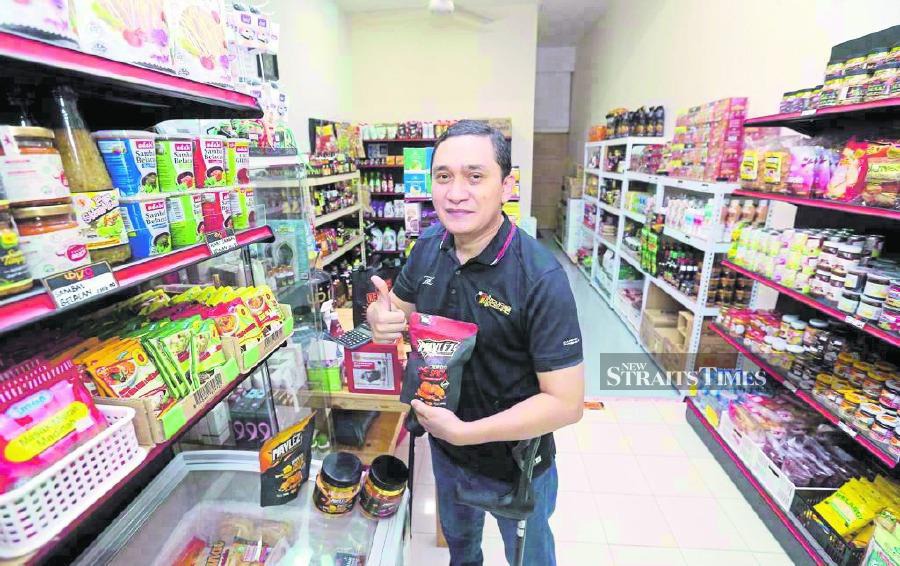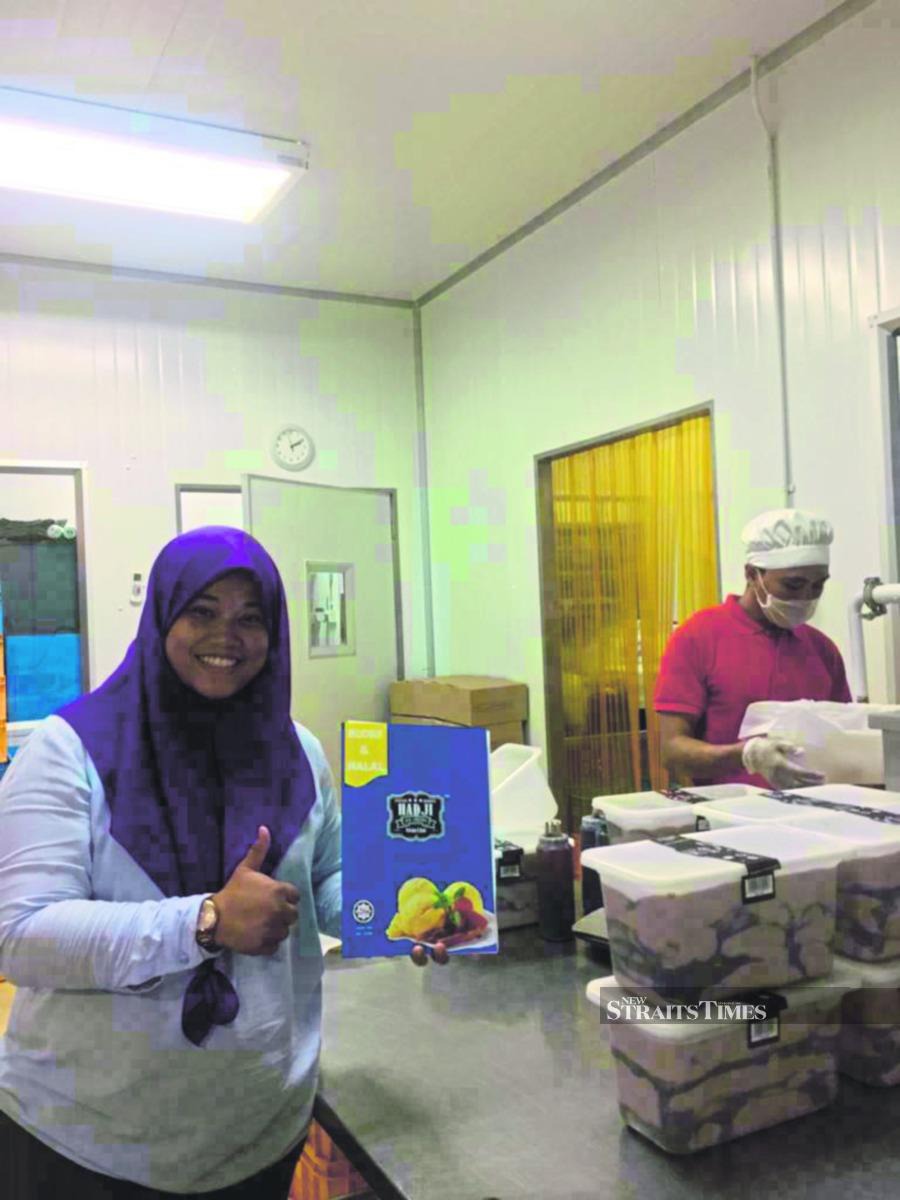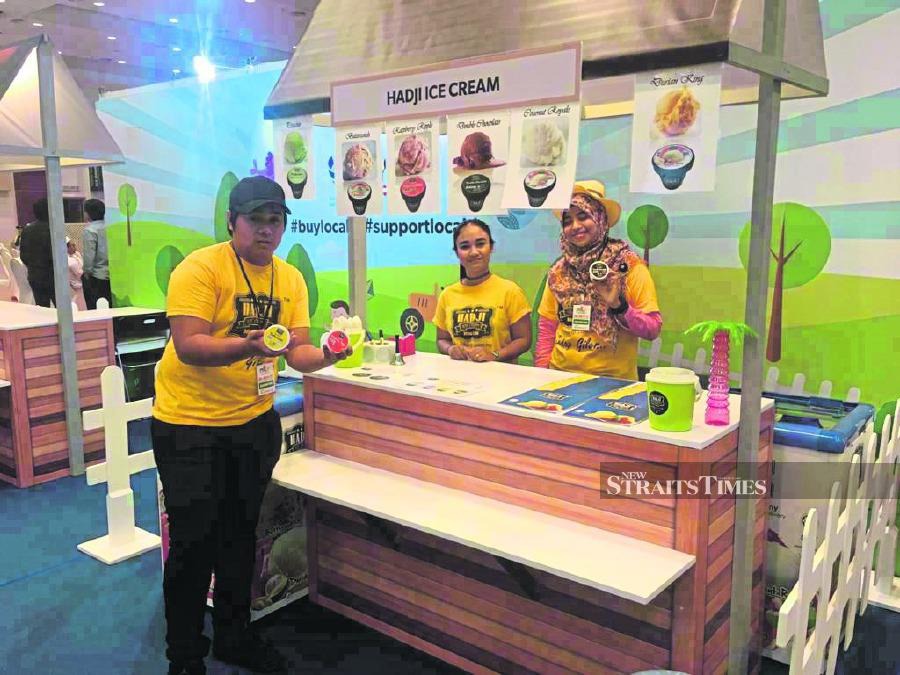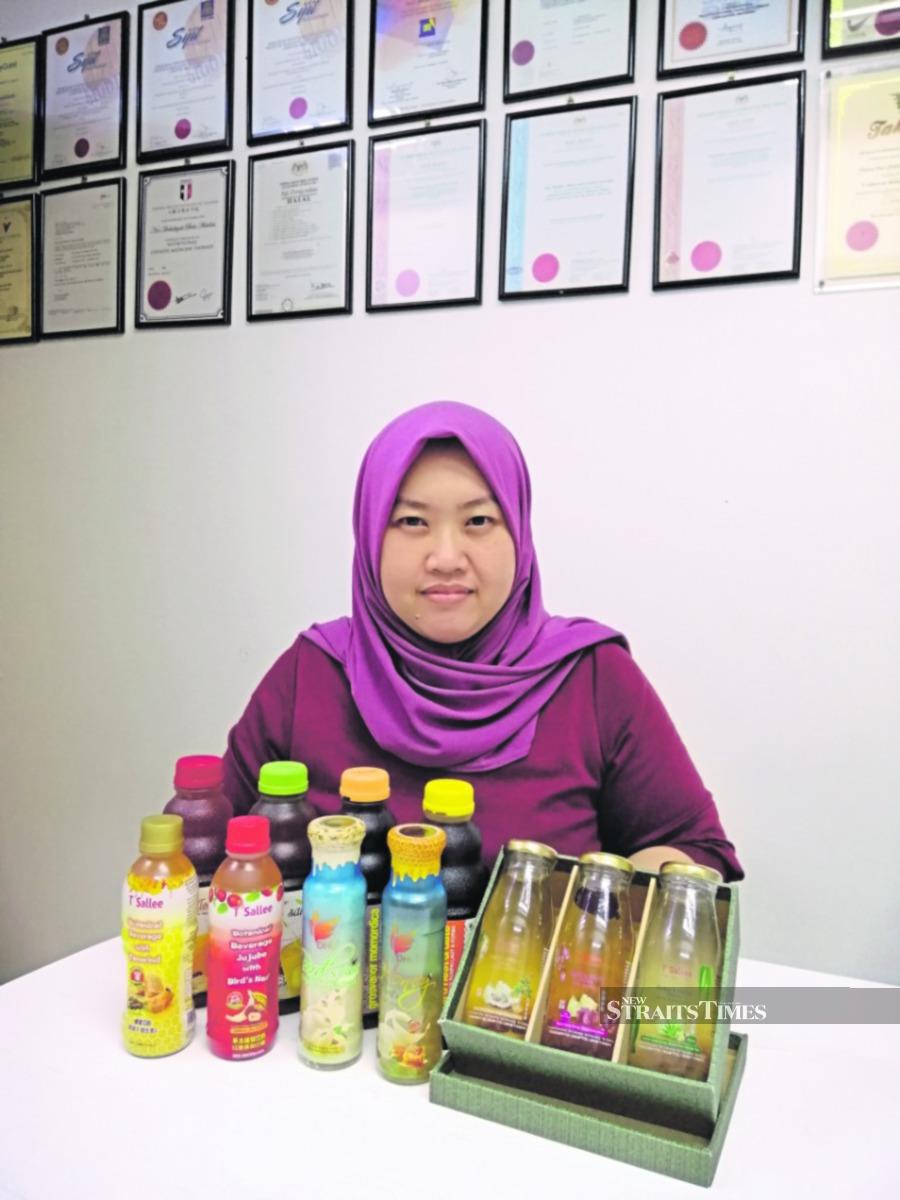Growing small businesses

KUALA LUMPUR: Small, homegrown business operators who never thought they could 'go big' have had their businesses transformed with assistance from the Domestic Trade and Consumer Affairs Ministry.
One such business has come a long way from selling simple household snacks called 'rempeyek' to now being sold at hypermarkets and convenience stores.
IT engineer Irwan Fairuzi Johari, 36, was diagnosed with an autoimmune disease in 2014, leaving him paralysed from the neck down.
He was forced to leave his job to focus on his recovery. After a year of treatment he has recovered but still requires help to walk.
"I managed to recover about 80 per cent of my health. However, it was still challenging to go about life. I decided to start a small business, selling 'rempeyek' to close family and friends, placing them at convenience stores nearby my house in Kajang,".

In 2018, he decided to grow his business and registered his company and product called 'Kunyah-Kunyah Snack' with the ministry.
The ministry offered him various training programmes and the turning point for his business was when they enrolled him in their Product Formation Programme.
"In this programme, they offered consultation and assistance to rebrand my product, including renaming it to 'The Mavlez' and even helped bear the cost of repackaging," he told New Straits Times recently.
Irwan said after being actively involved with the ministry's marketing programmes such as expos and exhibitions, he realised there were plenty of homegrown, high quality products which were not known to the public. "I hope our local entrepreneurs will enrol in the ministry's programmes as it will really help them grow their business," he added.
Irwan opened a convenience store called Riz Halalmart in Kajang last year, which sells locally-made products to support his fellow SMEs.
"We are currently looking for agents or stockists who would love to sell The Mavlez as a side business, and also sell it on an e-commerce platform".
Another entrepreneur, Yasmin Karim said registering with the ministry helped her understand the importance of product trademarks.
Famous for her fruit-based popsicles, the chief executive officer of Doluve Sdn Bhd said she and partner Zuraini Zulkifly decided to commercialise their products in 2016.


Pops Malaya is a homegrown brand that had won awards such as Usahawan Ikon KPDNHEP and Good Design Awards by Majlis Rekabentuk Malaysia.
"We aimed to grow our business incrementally each year, and the ministry has been giving us a lot of assistance in reaching that goal.
"When we registered, we finally understood the importance of trademarks, of registering your product under MyIPO and more. We have been advocating for other local SMEs to get their products registered ever since.
"The ministry has been emphasising on registering and trademarking your product and they will offer assistance if you are unsure how to do so. They even help us to penetrate local markets, and we are now sold in convenience stores such as Mesra and hypermarkets such as Lulu. We started here and now our products are available in Lulu hypermarkets abroad," she said.
The company came up with the first of its kind Ice Bars in Malaysia, an innovation of popsicles that are sold in liquid form at the confectioner's aisle in Mesra convenience stores and Lulu Hypermarkets, which consumers can freeze at their own preference.
Nor Ainhidayah Abdullah, 40, who is a Muslim convert, grew up drinking Chinese herbal drinks.
She had difficulty finding halal drinks in the market and decided to produce and sell her own.
"I started selling Bird Nest drinks in 2009 for local retail shops under the name 'Sallee', which is my Chinese name before converting to Islam. I started my own manufacturing plant and provided services for OEM products under a few local brands,".
"I managed to grow from three products to 70 products in a few years," she said.
In 2019, she decided to commercialise her product and with the ministry's assistance, rebranded her product under a new name called 'T'Sallee'.
"The ministry has been so helpful; they have enrolled me in their training and marketing programmes, which has helped me understand the process of getting my products sold in hypermarkets, product packaging development and proper marketing strategy.

"They even helped to build our own website, www.tsallee.com.my while using other e-commerce platforms to market my products," she said.
T'Sallee has grown to more than 120 products, made with authentic Chinese traditional herbs that focus on health- care such as herb soups.
Another success story under the ministry's guidance is Al-Jazeera Ice Cream Sdn Bhd owned by Nabila Suhairy and Fakhzan Syah Abdul Rahim.
The pair bought Al-Jazeera Ice Cream in 2012 and supplied soft serve ice creams to restaurants and hotels.
"After four years of research and development, we decided to come up with Hadji Ice Cream. That was also the year we found out that there is actually a ministry that helped local SMEs grow their products.
"We registered in 2016, and joined their training programmes including the Road to Hypermarket programme, online marketing training and more.
"Since then, the ministry has been helping us market our products. We've appeared on Al-Hijrah to promote our products, joined the Malaysia International Halal Showcase (Mihas) and Program Citarasa Malaysia showcase.
"They even helped us repackage our product and give it a new look. In January this year, we managed to penetrate our local hypermarkets, and now customers can find our products in Mydin hypermarkets nationwide.
"This has been so helpful, as the food and beverage and hotel industries have been badly affected by the pandemic. We can focus on marketing our product on other platforms," she said.
Hadji Ice Cream can also be purchased online, through their Facebook page or via e-commerce platforms. - NST
✍ Credit given to the original owner of this post : ☕ Malaysians Must Know the TRUTH
🌐 Hit This Link To Find Out More On Their Articles...🏄🏻♀️ Enjoy Surfing!



















Post a Comment